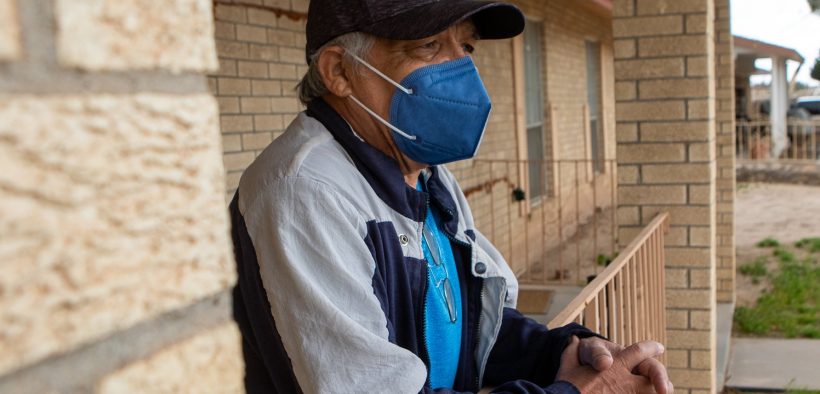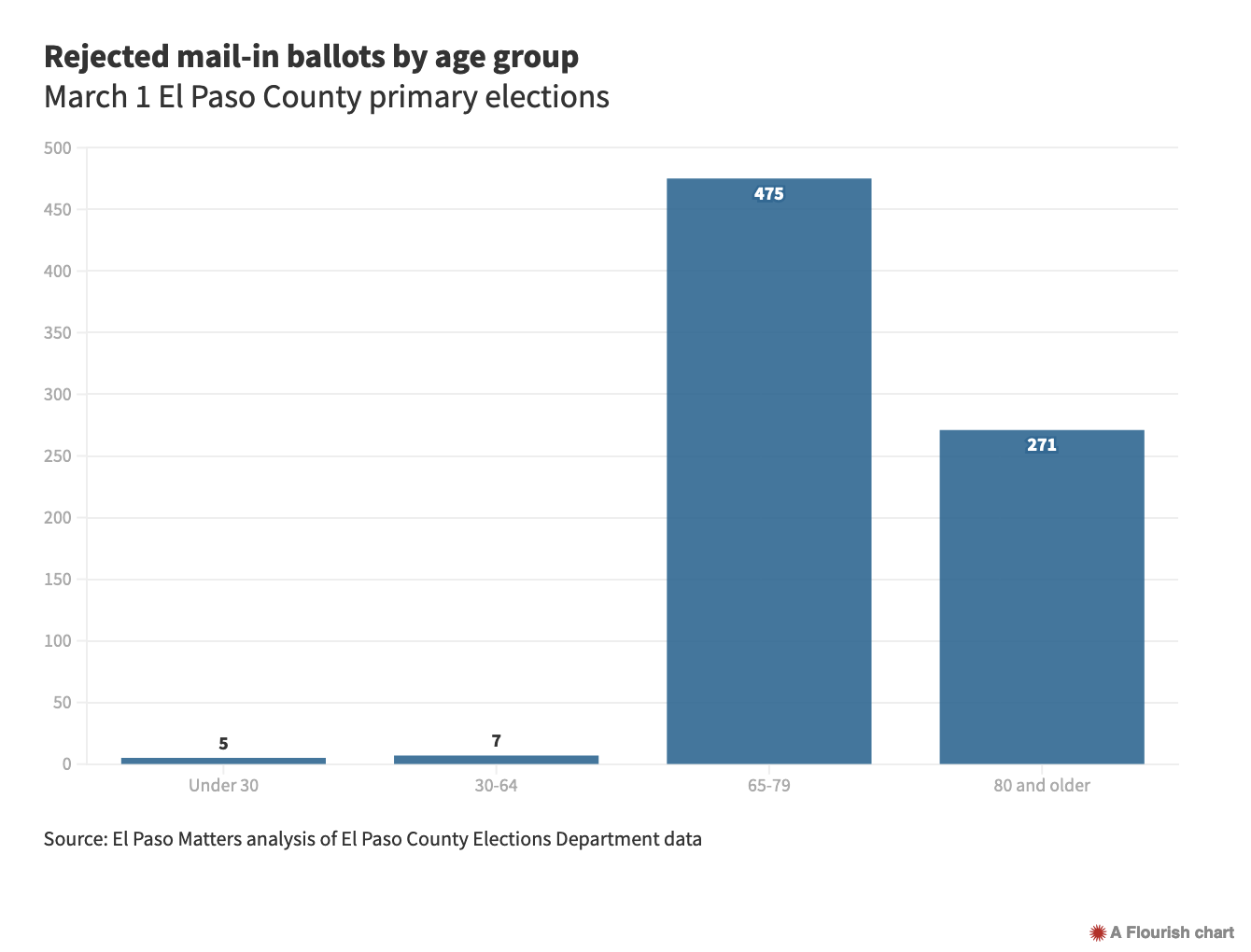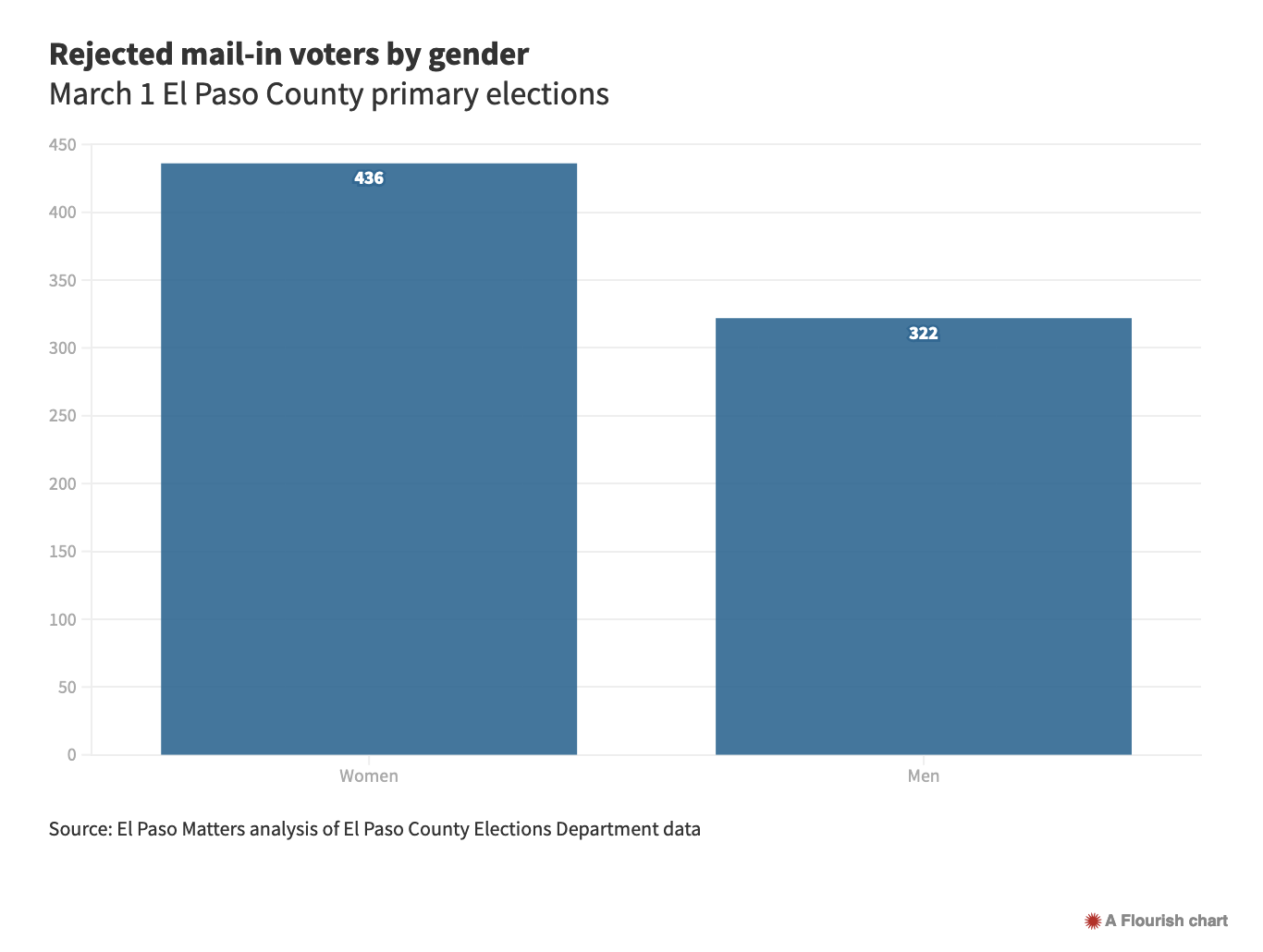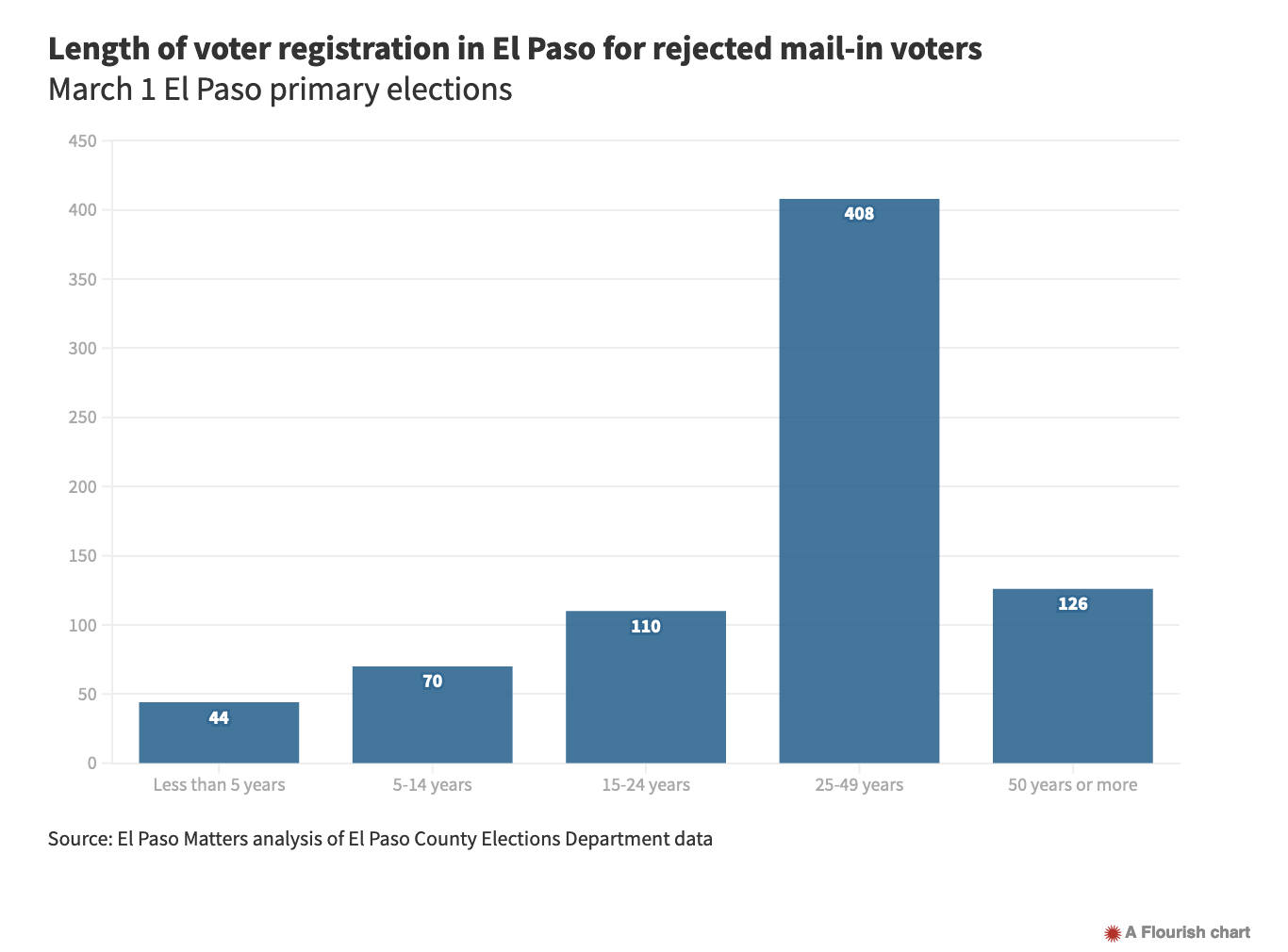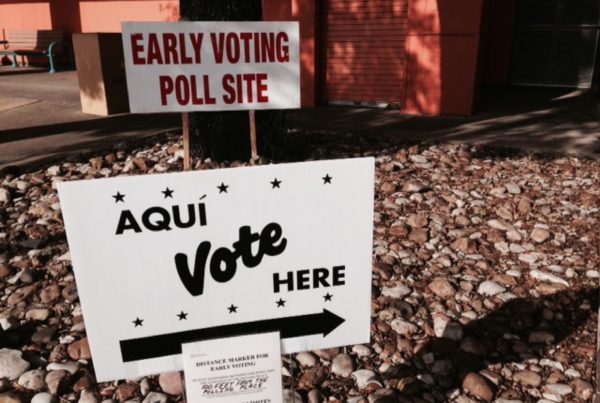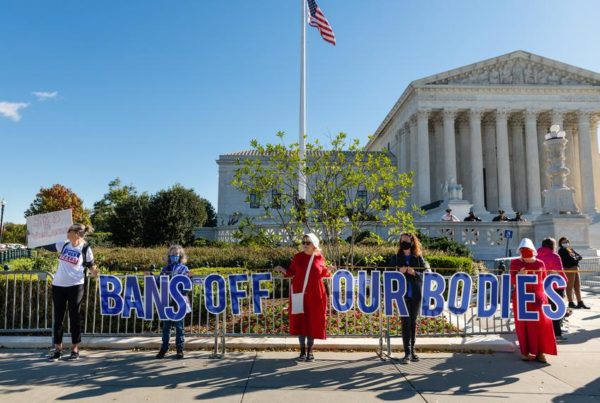The call from the El Paso County Elections Department came in on a Friday afternoon: Could Beverly Roberts and her 91-year-old mother, Jetta Roberts, come to the courthouse by end of day Monday to fix an error on their mail-in ballots?
Beverly Roberts was baffled. She thought for sure she’d provided the necessary identification numbers on their return envelopes, remembering taking out their wallets to find the right cards. Confusion turned to anger, knowing it was impossible for her ailing mother to leave the house. There was also no way she could leave her mother home alone.
“I’ve been voting all my life and I’ve never had a problem with my vote. And now this time, my vote isn’t worth it,” said Roberts, 69.
The mother and daughter are two of the 758 El Paso County voters who had their mail-in ballots rejected in the March 1 primary, the first election under Texas’ new voting restrictions, which were passed into law last year by the Republican-controlled Legislature. The new law disenfranchised 15% of El Paso’s absentee voters, who are some of El Paso’s longest-tenured and most active voters, based on an El Paso Matters analysis of county election records.
In 2018, the last midterm primary election, the El Paso County Elections Department threw out just 13 absentee ballots, most of which arrived after the deadline.
About 90% of this year’s rejected mail ballots went uncounted because they did not meet the new ID requirements.
Voters casting their ballot by mail must now provide either their driver’s license number or partial Social Security number on their ballot envelope. The same information must also be included on their ballot application. A missing ID number or different number from the one used to initially register to vote are grounds for rejection.
Seventy percent of El Paso’s rejected mail ballots were from voters who registered more than 25 years ago; 17% had registered at least 50 years ago.
The new law led to higher mail ballot rejections statewide. Almost 23,000 ballots across 187 of the state’s 254 counties went uncounted for reasons including failing to meet the new ID requirements, according to an Associated Press analysis.
Lisa Wise, El Paso’s elections administrator, said the new law isn’t working.
“For us, working is not rejecting 700 ballots — of people especially that we know are registered voters, we know most of them had voted before by mail,” Wise said. “These were not people trying to commit fraud.”
El Paso County had 20 rejected Democratic mail-in ballots for each rejected Republican vote, according to data Wise provided.
Trends in El Paso’s rejected ballots
El Paso County’s rejected mail-in ballots came from voters ranging in age from 20 to 103 years old. The average age was 77.
About 75% of these voters identified themselves as Hispanic and 57% were women.


